- Home
- P. D. James
The Skull Beneath the Skin Page 4
The Skull Beneath the Skin Read online
Page 4
“Not quite all. Two of the girls from the town have defaulted but Mrs. Chambers is bringing her granddaughter. I have interviewed the girl and she seems well intentioned if untrained. If the Courcy play is to be an annual event, sir, we may have to reconsider our staffing needs, at least for this one week of the year.”
Gorringe said calmly: “I don’t think that either you or Mrs. Munter need assume that the play will be an annual event. If you feel the need to plan for twelve months ahead, it would be safer to assume that this is the last performance which Lady Ralston will give on Courcy.”
“Thank you, sir. I should tell you that Lady Ralston telephoned. Sir George has an unexpected meeting to attend and is unlikely to arrive before Saturday afternoon and, possibly, not until after the performance. Lady Ralston proposes to solace marital deprivation by inviting a secretary-companion, a Miss Cordelia Gray. She will arrive with the rest of the party on Friday morning. Lady Ralston appeared to think that she need not speak to you personally about this arrangement.”
Munter’s disapproval came over the line as clearly as his carefully controlled irony. He was adept at judging just how far he could safely go, and since his veiled insolence was never directed against his employer, Gorringe was indulgent. A man, particularly a servant, was entitled to his small recalcitrant bolsterings of self-respect. Gorringe had noted early in their relationship how Munter’s persona, modelled as it was on Jeeves and his near namesake Bunter, became markedly closer to parody when any of his carefully contrived domestic arrangements was upset. During Clarissa’s visits to the castle he became almost intolerably Bunterish. Relishing his manservant’s eccentricities, the contrast between his bizarre appearance and his manner, totally uncurious about his past, Gorringe now hardly bothered to wonder whether a real Munter existed and, if so, what manner of man he might be.
He heard him say: “I thought that Miss Gray could be companionable in the De Morgan room, subject to your agreement.”
“That would seem suitable. And if Sir George does arrive for Saturday night he can have Memento Mori. A soldier should be inured to death. Do we know anything about Miss Gray?”
“A young lady, I understand. I take it that she will eat in the dining room.”
“Of course.”
Whatever Clarissa thought she was up to, it would at least even the numbers at his dinner table. But the thought of Clarissa with a secretary-companion, and a woman at that, was intriguing. He hoped that her addition to the party wouldn’t make the weekend more complicated than it already promised to be.
“Goodbye, Munter.”
“Goodbye, sir.”
When Gaskin returned to the office he found his customer sitting contemplatively holding the marble arm. He gave an involuntary shiver. Gorringe replaced the marble on its cushion and watched while Gaskin busied himself finding a small cardboard box and lining it with tissue paper.
He said: “You don’t like it?”
Gaskin could afford to be frank. The limb was sold and Mr. Gorringe had never yet rejected a piece once the price was agreed. He lowered the arm into its box taking care to touch only the cushion.
“I can’t say I’m sorry to see it go. I usually do very well with those porcelain models of the human hand which the Victorians were so fond of, ring stands and so on. I had a nice one in last week but the wrist frill was chipped. It wouldn’t have interested you. But a child’s arm! And cut off like that! I call it brutal, almost morbid. It’s just a feeling I have about the piece. You know how I am. It reminds me of death.”
Gorringe took a final look at the brooches before they were wrapped and boxed.
“Less rationally, surely, than should the jewellery and the widow’s cap. I agree with you; I doubt whether this is a memorial marble.”
Gaskin said firmly: “They’re different. They don’t worry me, memorials never have. But this is different. To tell you the truth, I took against it as soon as it came into the shop. Whenever I look at it, I keep imagining that it’s oozing blood.”
Gorringe smiled.
“I must try it on my house guests and watch their reactions. The Courcy play next weekend is The Duchess of Malfi. If this were a full-sized male hand we could use it for one of the props. But even the Duchess in her extremity could hardly mistake this for the dead hand of Antonio.”
The allusion was lost on Gaskin who had never read Webster. He murmured: “No indeed, sir,” and smiled his sly, sycophantic smile.
Five minutes later, he saw his customer and his parcels formally off the premises, congratulating himself with premature satisfaction—for despite his carefully nurtured sensitivity he had never claimed to be a clairvoyant—that he had seen and heard the last of the arm of the dead Princess.
4
Less than two miles away, in a Harley Street consulting room, Ivo Whittingham slipped his legs over the edge of the examination couch and watched Dr. Crantley-Mathers shuffle back to his desk. The doctor, as always, was wearing his old but well-tailored pinstripe suit. Nothing so clinical as a white coat ever intruded into his consulting room, and the room itself with its patterned Axminster carpet, its Edwardian carved desk holding the silver-framed photographs of Sir James’s grandchildren and distinguished patients, its sporting prints and the portrait of some solidly prosperous ancestor holding pride of place above the carved marble mantelshelf, looked more like a private study than a consulting room. No apparent effort was made to keep infection at bay; but then, thought Whittingham, germs would know better than to lurk in the well-upholstered armchair in which Sir James’s patients awaited his advice. Even the examination couch looked unclinical, being covered with brown leather and mounted by way of elegant eighteenth-century library steps. The assumption was that, although a number of Sir James’s guests might wish for some private whim to take off their clothes, that eccentricity could have nothing to do with the state of their health.
Now he looked up from his prescription pad and asked: “That spleen troubling you?”
“As it must weigh twenty pounds and I look and feel like a lopsided pregnant woman, yes, you could say that it’s troubling me.”
“The time may come when it’s better out. No hurry, though. We’ll have another think in a month’s time.”
Whittingham went behind the painted oriental screen where his clothes were folded over a chair and began to dress, drawing his trousers up over the heavy belly. It was, he thought, like carrying one’s own death, feeling it drag at the muscles, a foetus-like incubus which never stirred, reminding him with its dead weight, by the deformity which he saw in his mirror every time he bathed, what it was he bore within him. Looking over the screen, he said, his voice muffled by his shirt: “I thought you explained that the spleen is enlarged because it’s taken over the manufacture of the red blood corpuscles which my blood’s no longer producing.”
Sir James didn’t look up. He said with careful unconcern, “That’s more or less what’s happening, yes. When one organ ceases to function, another tends to take over.”
“So would it be tactless to inquire which organ will obligingly take over the job when you’ve whipped out the spleen?”
Sir James guffawed at this witticism. “Let’s cross that bridge when we come to it, shall we?” He had never, thought Whittingham, been a man for originality of speech.
For the first time since his illness began Whittingham would have liked to ask his doctor directly how much time remained for him. It wasn’t that there were affairs that he needed to put in order. Divorced from his wife, alienated from his children, and living now alone, his affairs, like his obsessively tidy flat, had been depressingly in order for the last five years. The need to know was now little more than a mild curiosity. He would be glad to learn that he was to be spared another Christmas, his most disliked time of the year. But he realized that the question would be in the worst of taste. The room itself had been designed to make it unsayable; Sir James was adept at training his patients not to ask questions which they
knew it would distress him to have to answer. His philosophy—and Whittingham wasn’t altogether in disagreement with it—was that patients would realize in their own good time that they were dying and that, by then, physical weakness would ensure that the realization would be less painful than a sentence of death pronounced when the blood still ran strongly. He had never believed that the loss of hope did anyone any good, and besides, doctors could be wrong. This last assertion was a conventional gesture to modesty. Sir James did not privately believe that he personally could be wrong, and indeed he was a superb diagnostician. It was hardly his fault, thought Whittingham, that the ability of the medical profession to diagnose is so far in advance of its ability to cure. Slipping his arms through his jacket sleeves he spoke aloud Brachiano’s words from The White Devil:
On pain of death, let no man name death to me:
It is a word infinitely terrible.
It was a view Sir James obviously shared. It was surprising, supposing him to know them, that he hadn’t carved the words over his door lintel.
“I’m sorry, Mr. Whittingham. I didn’t quite catch what you said.”
“Nothing, Sir James. I was merely quoting Webster.”
Escorting his patient to the consulting-room door at which an exceedingly pretty nurse was waiting to see him finally on his way, the doctor asked: “Are you going out of London this weekend? It’s a pity to waste this weather.”
“To Dorset, actually. To Courcy Island, off Speymouth. An amateur company with some professional support is putting on The Duchess of Malfi and I’m doing a piece for one of the colour supplements.” He added, “It’s chiefly about the restoration of the Victorian theatre on the island and its history.” Immediately he despised himself for the explanation. What was it but a way of saying that dying he might be but he wasn’t yet reduced to reviewing amateurs?
“Good. Good.” Sir James boomed out a note of approval which might have sounded excessive even for God on the seventh day.
When the imposing front door had closed behind him Whittingham was tempted to hire the taxi which had just drawn up, presumably to deposit another patient. But he decided he might manage a mile of the walk to his Russell Square flat. And there was a new coffee house in Marylebone High Street where the young couple who owned it ground the beans freshly and made their own cakes, and where a few chairs under umbrellas gave the locals the illusion that the English summer was suitable for eating out. He might rest there for ten minutes. It was extraordinary how important these trivial self-indulgences had become. As he resigned himself to the accidie of mortal illness he was beginning to acquire some of the foibles of old age, a liking for small treats, a fussiness about routine, a reluctance to bother with even his oldest acquaintances, an indolence which made even dressing and bathing a burden, a preoccupation with his bodily functions. He despised the half-man he had become, but even this self-disgust had some of the querulous resentment of senility. But Sir James was right. It was difficult to feel regret about losing a life so diminished. By the time this sickness had finished with him, death would be no more than the final disintegration of a body from which the spirit had already seeped away, worn out by pain, by weariness and by a malaise which went deeper than physical weakness, some brittle-armed traitor of the heart who had never mustered the will to fight.
As he made his way down Wimpole Street through the mellow autumn sunlight he thought of the great performances he had seen and reviewed and mentally spoke the names like a roll call: Olivier’s Richard the Third, Wolfit playing Malvolio, Gielgud’s Hamlet, Richardson’s Falstaff, Peggy Ashcroft’s Portia. He could recall them, could remember the theatres, the directors, even some of the most quoted extracts from his reviews. It was interesting that, after thirty years of play-going, it was the classics which had lasted longest for him. But he knew that, even if he were this night to take his accustomed seat in the third row of the stalls, formally dressed as he always was for a first night, listening to that anticipatory hum which is unlike any other sound in the world, nothing that happened when the curtain rose would move or excite him beyond a mild, detached interest. The glory and the wonder had departed. Never again would he feel that tingle between the shoulder blades, that almost physical surge of the blood which, for all his youth, had been his response to great acting. It was ironic that now, all passion spent, he was about to review his last play, and that an amateur production. But somehow he would find the energy for what he had to do on Courcy Island.
The island was reputed to be beautiful and the castle an interesting example of high Victorian panache. Seeing them would probably be worth the effort of the journey, which was as close as he could now get to enthusiasm. But he was less sure about the company. Clarissa had mentioned that her cousin, Roma Lisle, was to be there with a friend. He hadn’t met Roma, but had had to listen to Clarissa’s caustic disparagement of her for too many years to relish being under the same roof as them both, while the careful omission of the friend’s name hadn’t been reassuring. And the boy was to be with them, apparently. Clarissa’s decision to take on the son of her drowned husband, Martin Lessing, had been one of her more spectacular impulses; he wondered who was regretting it more, benefactress or victim. On the three occasions on which he had met Simon Lessing, two at the theatre and one at a party at Clarissa’s Bayswater flat, he had been struck by the boy’s gaucherie and by a sense of deep personal wretchedness which he thought had less to do with adolescence than with Clarissa. There had been something dog-like in his servility, a desperate need to win her approval without the least idea what it was she wanted of him. Whittingham had seen that same look in his father’s eyes; the prick of memory hadn’t been comfortable. Simon was supposed to be a talented pianist. Probably Clarissa had seen herself splendidly cantilevered in one of the front boxes at the Royal Festival Hall while her prodigy, adoring eyes glancing upwards, took his triumphant bow. It must be disconcerting for her to be faced instead with the moodiness and the physical gracelessness of adolescence. He found himself possessed of a slight interest in seeing how the two of them were making out. And there would be other minor satisfactions; not the least would be watching how Clarissa Lisle was coping with her own neurosis. If this were to be his last performance there was some satisfaction in knowing that it might well be hers. She would know that he was dying. She had the use of her eyes. But he wouldn’t grudge her any pleasure she could get from observing the process of his physical disintegration. There were subtler pleasures than that; watching mental disintegration might, he suspected, be among them. He was discovering that even hatred died a little at the end. But it still lasted longer than desire, longer even than love. Walking slowly in the sunshine and thinking of the weekend ahead, he smiled at the realization that what was most alive in him now was the capacity for mischief.
5
In the basement of a small shop in a passageway off the north end of Tottenham Court Road, Roma Lisle was on her knees unpacking and sorting a box of second-hand books. The room, which had originally been a kitchen and which still contained an old porcelain sink, a row of wall-mounted cupboards and a disconnected gas cooker so heavy that the combined efforts of Colin and herself had been unable to shift it, was oppressively hot despite the tiled floor. Outside, the accumulated heat of the dying summer seemed to have concentrated in the area beneath the iron railings, pressing against the one small window like a sweaty, fume-soaked blanket, cutting off air as well as light. Above her the single pendant light threw shadows rather than illumination; it was ridiculous to have to be using expensive electricity on such a day. She must have been mad ever to have thought that this hole could be transformed into an intimate, invitingly cosy second-hand books department, a browser’s delight.
The books, she now saw, were a poor lot. She had bid for them and bought them cheaply at a country-house sale. Now the first real inspection revealed that it hadn’t been cheap enough. The best had been on the top. The rest were a motley collection of Victorian sermons, rem
iniscences of retired generals, biographies of minor politicians as undistinguished in death as they had been in life, novels which provoked no interest except a wonder that anyone should have chosen to publish them.
Her knees were numb against the tiles, her nostrils choked with the smell of dust, of mouldering cardboard and rotting paper. In her imagination it was to have been so different; Colin kneeling beside her, the happy rummaging, the exclamations of pleasure as each treasure came to light, the laughter, the planning, the fun. She remembered their last day at Pottergate Comprehensive, the farewell party with its cheap sherry, and inevitable crisps and cheese savouries; the barely concealed envy of their colleagues that she and Colin were getting out, setting up business together, saying goodbye to timetables, mark sheets, examinations, the daily dispiriting struggle to impose order on a class of forty in an inner-city comprehensive where teaching had always to be subordinated to the struggle to maintain some semblance of discipline.
And that was only nine months ago! Nine months in which everything they had bought, everything they needed had become more expensive, in which the shop had been as dead as if boarded up and bankrupt. Nine months of overwork and dwindling returns, of fading hope and half-acknowledged panic. Nine months—could it be?—of the slow death of desire. She almost cried out in protest, shoving her strong hands against the box as if the thought and its pain could be physically pushed from her mind. And then she heard his step on the stairs. She turned her face to his, making herself smile. He had hardly spoken over luncheon. But that was three hours ago. Sometimes his moods didn’t last. His first words destroyed hope.
“My God, this place stinks.”
“It won’t, once we get it cleaned up.”
“And how long will that take? It needs an army of cleaners and decorators. And even then, it’ll still look what it is, a basement slum.”

 The Skull Beneath the Skin
The Skull Beneath the Skin A Taste for Death
A Taste for Death The Children of Men
The Children of Men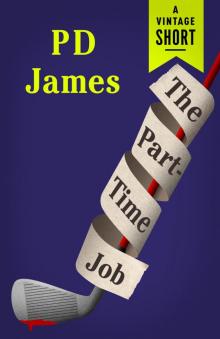 The Part-Time Job
The Part-Time Job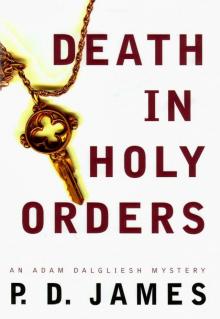 Death in Holy Orders
Death in Holy Orders The Victim
The Victim Shroud for a Nightingale
Shroud for a Nightingale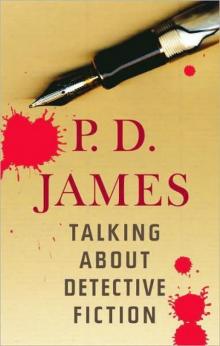 Talking about Detective Fiction
Talking about Detective Fiction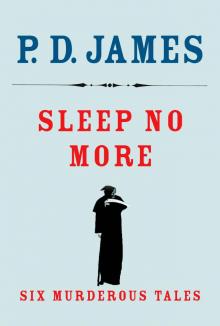 Sleep No More
Sleep No More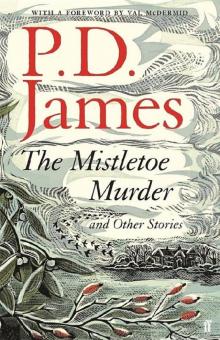 The Mistletoe Murder and Other Stories
The Mistletoe Murder and Other Stories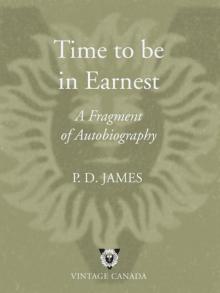 Time to Be in Earnest
Time to Be in Earnest Original Sin
Original Sin A Mind to Murder
A Mind to Murder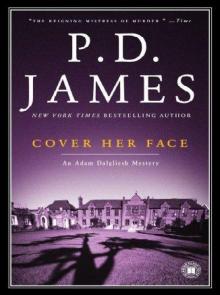 Cover Her Face
Cover Her Face Innocent Blood
Innocent Blood Devices and Desires
Devices and Desires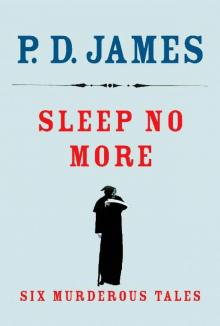 Sleep No More: Six Murderous Tales
Sleep No More: Six Murderous Tales Death Comes to Pemberley
Death Comes to Pemberley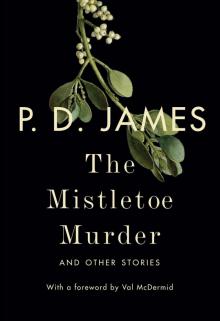 The Mistletoe Murder
The Mistletoe Murder Death of an Expert Witness
Death of an Expert Witness The Private Patient
The Private Patient The Black Tower
The Black Tower Devices & Desires - Dalgleish 08
Devices & Desires - Dalgleish 08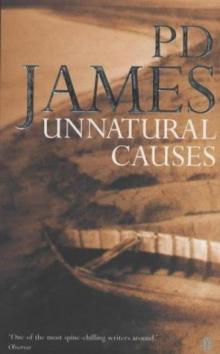 Unnatural Causes
Unnatural Causes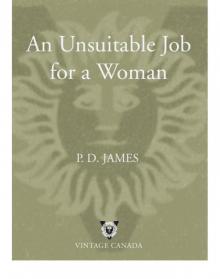 An Unsuitable Job for a Woman
An Unsuitable Job for a Woman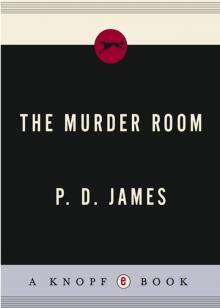 The Murder Room
The Murder Room A Certain Justice
A Certain Justice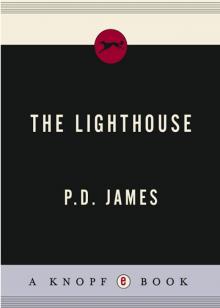 The Lighthouse
The Lighthouse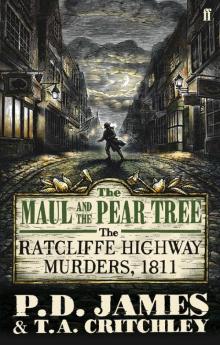 The Maul and the Pear Tree
The Maul and the Pear Tree